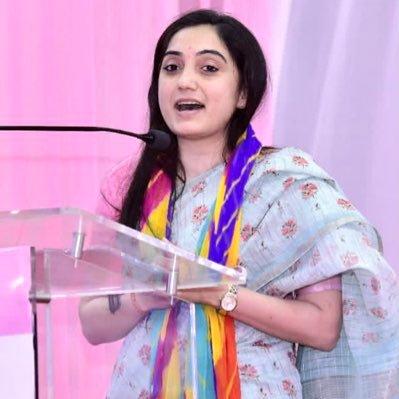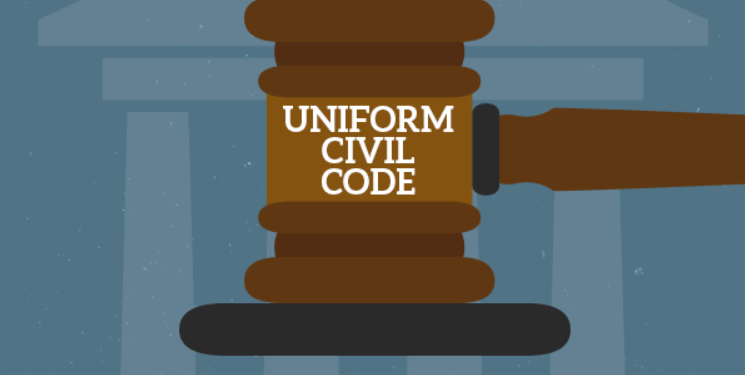Travel Tips
Lorem ipsum dolor sit amet, consectetur adipiscing elit.
Search

An even greater challenge is that, despite being the world's fastest-growing economy in the twenty-first century, India's GDP is declining on a daily basis.
India is yet to call on a great government that can rebuild the country in its various sectors. The majority of the country, both religiously and politically, is on the verge of attacking minorities living there. Our economy is no longer stable and sustainable as well. Contemporary India is not providing much more freshness for the people of their country.
Despite this, constitutional values are not well practised in contemporary India. Religious freedom should not be provided for all of them. India is in a position where even the American Parliament is discussing the freedom of religion and that of minorities.
Being an Indian
Being an Indian in this town is not a pleasant experience. I don't know how far this is true, but I am saying that amid these COVID situations, we faced and heard a lot of experiences from international airports facing questions related to our nation's COVID certificate. It is not a polite gesture to leave or arrive with a certificate bearing their prime minister's photograph. We Indians are being mocked everywhere we go, by everyone we meet. Indians are unconcerned about domestic issues, but they are hostile to minorities.When Indian Prime Minister Narendra Modi assumed office in 2014, it was not the time to appease the area's minorities. Muslims constitute the nation's largest minority, accounting for 14.8% of the total population, with 200 million constituting the world's largest Muslim community, and Dalits face illegal discrimination. Despite the name of the world's largest democracy, it is claimed that no democracy exists in the country. The Hindu-majority country is brimming with Muslim religious and moral issues.
Indian rhetoric in international borders
In particular, the recent comments made by suspended spokesperson Nupoor Sharma of the country's governing side, the Bharatiya Janata Party (BJP), have spilt over national and international borders. The derogatory remarks about the personality of Prophet Muhammad caused an unprecedented response in West Asian countries with a Muslim majority, many of which are leading nations in international trade with India. All West Asian countries and organizations of Islamic cooperation have condemned the blasphemy as it is against the prophet's personality. Moreover, Indian economist s are afraid of what would result from India's trade with Arab countries, especially with the Arab greats of Saudi Arabia and the United Arab Emirates (UAE). These contentious remarks were made during the president's three-nation visit, which included the OIC nation of Qatar.Recently, the US spoke out that religious freedom in India is weakening and minorities are not treated well. The world has likely started to witness India's situation with its minorities. Even so, the football players did speak out of their fear of what would happen. Two months ago, before the Gyanvapi issue that broke out in the BJP-governed state of Uttar Pradesh and before the comments on the prophet's personality, the world was queuing up for New Delhi's words. BJP spokesperson and her party did not think of the consequences it would have.
s are afraid of what would result from India's trade with Arab countries, especially with the Arab greats of Saudi Arabia and the United Arab Emirates (UAE). These contentious remarks were made during the president's three-nation visit, which included the OIC nation of Qatar.Recently, the US spoke out that religious freedom in India is weakening and minorities are not treated well. The world has likely started to witness India's situation with its minorities. Even so, the football players did speak out of their fear of what would happen. Two months ago, before the Gyanvapi issue that broke out in the BJP-governed state of Uttar Pradesh and before the comments on the prophet's personality, the world was queuing up for New Delhi's words. BJP spokesperson and her party did not think of the consequences it would have.
India is a religiously intolerant nation. The recent controversial issues over Muslims, including hijab, Gyan Vapi, and blasphemy, did put India's face in front of the world as the worst democratic country. As India is the fastest-growing economy in the world, these issues ended up with a face that Indians should not have. Even Qatar Airways mocked India's advertising on their site, "Fly from Kanpur and See the World," as Indians are not much improved.
Internationally, India's relationship with Pakistan over Kashmir and China's relationship with East Ladakh are strained in the region. Both India's and China's foreign ministers are frequently involved in bilateral issues. But it remains in the past or darkens further. In the case of lessons we have to learn from other nations, China is one of the nations to teach India in various sectors they use. China's infrastructure is superior to that of the United States and the United Arab Emirates. The leading cities of Shanghai, Guangzhou, and Hong Kong are on the verge of being globalized. In the case of infrastructure in India, it is pretty clear that India is not one to be counted as infrastructure, and I'm not sure if it would happen, I'm sure it wouldn't.
As India urges Indo-Pacific trade, the QUAD nations (Australia, India, Japan, and the US) are trying to make sure of trade, production, and energy. Another international organization in which India participates is the IPFF, which works with Australia, Indonesia, Singapore, Brunei, Thailand, Malaysia, New Zealand, the Philippines, Japan, South Korea, and Vietnam to promote regional trade. What's wonderful is that India is the only country that shares a land border with China and has disputes with them.
Religious dissensions
The thing we might challenge is a religion since in the case of religious matters, it is said there has been nothing to call freedom in the nation over the past few decades. The nation now finds it troublesome and quarrelsome to live with religion, which is a minority religion there. It is a matter to be considered. Religious freedom is something that the nation is losing day by day. That's what exactly started with the destruction of the Babri Masjid at Ayodhya on December 6, 1992.
The recent comment made by the Supreme Court of India did cast a shadow over the minds of the nation's Muslims regarding what they began to suspect in the nation's judiciary. The nation is on the verge of a large conflict between the majority Hindu and minority Muslim, and the governing side is potentially part of this complex matter. As we know, the world is watching what is done, with an important eye on India.
More so, the majority does matter to minorities who are Muslims because of the genocide they are thinking of. In India, all BJP-ruled states batted a lot before implementing the UCC ( ). Lastly, Uttarakhand Chief Minister Pushkar Singh Dhami did start his state's preparations to set up UCC. But this is something they aren't considering in terms of the consequences. They are not worried about the impact it would have on the Hindu community in various parts of the nation. Hindus have a long history of hospitality. It varies from one state to the next, from one district to the next; we can see this by travelling across the country.
). Lastly, Uttarakhand Chief Minister Pushkar Singh Dhami did start his state's preparations to set up UCC. But this is something they aren't considering in terms of the consequences. They are not worried about the impact it would have on the Hindu community in various parts of the nation. Hindus have a long history of hospitality. It varies from one state to the next, from one district to the next; we can see this by travelling across the country.
Economy of India
An even greater challenge is that, despite being the world's fastest-growing economy in the twenty-first century, India's GDP is declining on a daily basis. The rapid rise in the price of things like petroleum and gas cylinders in daily use would result in the economic growth of the nation, which the majority of citizens would not be able to resist. It is a worrying matter for the nation's economy, even though the people are protesting so much.
There is also the noticeable matter that the world is seeing New Delhi and lining up to see what is next. In an interview, Amazon CEO stated about India, "The twenty-first century is to be the Indian century."
After all, as I mentioned before, the world is watching New Delhi's every move. As it is, The Economist magazine published on May 20 covered a photo showing Prime Minister Narendra Modi and a vehicle he carries going to a dig. The pundits say that this raises the great question of whether Narendra Modi takes advantage of the opportunities he has to lead his nation to the world's best economy.
Take this matter as regards India's economy, religious tolerance, and international affairs, which have been vast ones to discuss. Even those matters that are ignored by the people should be discussed by pundits. Put differently, matters of wide attention have been considered by great countries and organizations. The last words to inform you are that India is the largest democracy in the world. to have a mind to it.
v
Comments